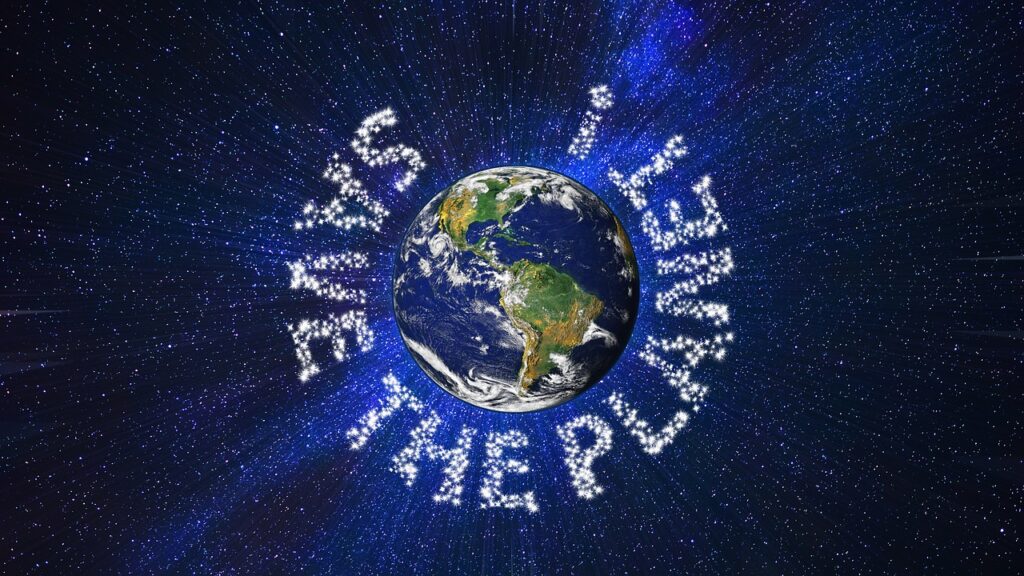

Recent Climate Ordeals Show that We are Unprepared for a Warming World
By Gayil Nalls, Cameron Lindsay, and David Strunk
Sign up for our monthly newsletter!
Every night the evening news tracks relentless rain and massive wildfires that are devastating homes, with residents fleeing for their lives. Deadly heat traps families in homes without electricity in one location after another. Planes have been grounded, train tracks are buckling, and the air, often thick with heavy smoke and ash, threatens life. The effects of the warming ocean are changing weather patterns across the globe, and analysts predict that the Atlantic’s slowing circulation may be on an unstoppable course. This July, the journal Nature Communications published research describing how human-generated greenhouse gas emissions are close to setting off irreversible environmental changes. It’s clear from this recurring global pattern of devastation that we have built our communities for a climate that no longer exists.
If you own a house or property, you may already be trying to adapt it to the extreme weather and are discovering what a demanding and costly task it can be. But what if you are a country?
As global heat numbers rise and surpass former records, a new stark reality at a planetary level is forming. During the 2015 Paris Agreement meeting, 196 nations agreed to try to limit the global temperature increase to 1.5 degrees Celsius above pre-industrial levels. However, many countries do not have climate plans that will enable them to meet their obligations under this agreement, and the planet, already in climate chaos, is rapidly approaching a 1.5 degrees Celsius increase. The United States, along with many other countries, is not prepared for this. Countries are experiencing that their national infrastructures, such as transportation, communications, power grids, buildings, and storm sewer systems, were created for a climate that is in our past. Without rapid adaption, our nations are in peril.
According to the most recent report from the United Nations’ Intergovernmental Panel on Climate Change (IPCC), the committee is “highly confident” that there will be negative climate change repercussions that are unavoidable and extremely hazardous to the future of this planet. However, the report also clearly states that this potentially dangerous and deadly outcome is not the only option.
The committee’s findings define a two-step process to preserving the planet from becoming uninhabitable. The first is for all “industrialized nations” to unite and cut greenhouse gasses in half by 2030. The second step is the daunting task of eradicating new carbon dioxide emissions to the planet’s atmosphere by the 2050s. Though countries claim to be on board and committed to these goals, many nations continue to sign off on new fossil fuel programs. If continued, these programs alone will add two degrees of heat to the planet’s temperature. These steps are imperative, but each nation must overcome obstacles to achieve these goals. And because of that, individuals, corporations, and industries must do their part to ensure that their governments do not fail.
Federal, state, and city governments and corporations can drive progress in the research and development of clean energy technologies and changes in emissions standards. Recently, in the United States, the Biden-Harris Administration announced the allocation of 2.5 billion dollars toward cutting carbon emissions and pollution. Much of that money goes toward commercial-size carbon capturing – a process that seizes the carbon at different plants and industrial complexes before it enters the atmosphere. New York Governor Hochul has rolled out one of the most ambitious climate efforts with the state’s new Cap-and-Invest legislation, a plan to help the state meet its climate goals by knocking down greenhouse gas emissions. Through this legislation, New York is providing climate leadership aimed at protecting its communities.
Climate mitigation will require commitments by the entire population of a nation. For cities and lands to remain habitable, swift adaptations must occur. In the United States, emissions in 2020 were 14.6 tons of CO2 equivalent per person, double the global average. Americans must do their part to reduce their impact on the environment. People can save energy at home by switching to renewable energy and reducing heating and cooling energy use. Forgoing car ownership for public transportation can cut an individual footprint by up to 2 tons of CO2e per year, and walking or riding a bike will also benefit health. Only purchase what is necessary and dispose of waste safely – food that rots in landfills produces methane, and improperly discarded trash chokes water supplies and poisons soil. Encourage biodiversity by planting native species that will offer refuge to animals and insects. If every person takes the initiative to make conscious changes, results will surely follow. There is still hope for our earth, but we must all undertake accelerated and transformative action now.
Gayil Nalls is an interdisciplinary artist, gardener, and conservationist. She is the founder of World Sensorium / Conservancy and editor of its journal Plantings.
Cameron Lindsay is a writer focusing on social justice and environmental conservation based in New York and Brighton, England.
David Strunk is a writer focused on climate conservation originally from Alabama and now based in New York.
Sources
“Actions for a healthy planet.” United Nations. Available at https://www.un.org/en/actnow/ten-actions#:~:text=Reduce%2C%20reuse%2C%20repair%20and%20recycle,and%20repair%20what%20you%20can.
“Ar6 Synthesis Report: Summary for Policymakers Headline Statements.” Intergovernmental Panel on Climate Change. Available at: https://www.ipcc.ch/report/ar6/syr/resources/spm-headline-statements.
“Biden-Harris Administration announces $2.5 billion to cut pollution and deliver economic benefits to communities across the nation.” (2023). Energy.gov. Available at: https://www.energy.gov/articles/biden-harris-administration-announces-25-billion-cut-pollution-and-deliver-economic.
Borenstein, S. (2023). “Why the U.S. is leading the world in extreme weather catastrophes.” PBS NewsHour. Available at: https://urldefense.proofpoint.com/v2/url?u=https-3A__www.pbs.org_newshour_science_why-2Dthe-2Du-2Ds-2Dis-2Dleading-2Dthe-2Dworld-2Din-2Dextreme-2Dweather-2Dcatastrophes&d=DwMCAg&c=slrrB7dE8n7gBJbeO0g-IQ&r=TepC2rRND48822GXKTi-vg&m=wDcxhSjH3UYL_6xiHVzGrsllYrba3zYBQ3QBCZTTZIa3CkT9pZUa1XFfEoDa2Gjg&s=M5E20PZfCI3rVBTpHW6bL7pL0_aC1QCaTDh3qxERvJk&e=.
Ditlevsen, P and Ditlevsen, S. (2023). “Warning of forthcoming collapse of the Atlantic meridional overturning circulation.” Nature Communications 14, 4254. Available athttps://www.nature.com/articles/s41467-023-39810-w.
Office, N.P. (2023). “Governor Hochul unveils Cap-and-invest program to reduce greenhouse gas emissions and combat climate change.” NYSERDA. Available at: https://urldefense.proofpoint.com/v2/url?u=https-3A__www.nyserda.ny.gov_About_Newsroom_2023-2DAnnouncements_2023-2D1-2D10-2DGovernor-2DHochul-2DUnveils-2DCap-2Dand-2DInvest-2DProgram&d=DwMCAg&c=slrrB7dE8n7gBJbeO0g-IQ&r=TepC2rRND48822GXKTi-vg&m=wDcxhSjH3UYL_6xiHVzGrsllYrba3zYBQ3QBCZTTZIa3CkT9pZUa1XFfEoDa2Gjg&s=mNTCGaVhtov8BfJ8YoeKwsKa1XI-4D4T0Xb6wxGDPcs&e=.
Plumer, B. (2023). “Climate change is speeding toward catastrophe. The Next Decade is crucial, U.N. panel says.” The New York Times. Available at: https://www.nytimes.com/2023/03/20/climate/global-warming-ipcc-earth.html#:~:text=1.9k-,Climate%20Change%20Is%20Speeding%20Toward%20Catastrophe.,of%20dollars%20and%20big%20changes.
“Simple tips to reduce your carbon footprint.” (2019). Sustainability at Georgetown University. Available at: https://urldefense.proofpoint.com/v2/url?u=https-3A__sustainability.georgetown.edu_community-2Dengagement_things-2Dyou-2Dcan-2Ddo_&d=DwMCAg&c=slrrB7dE8n7gBJbeO0g-IQ&r=TepC2rRND48822GXKTi-vg&m=wDcxhSjH3UYL_6xiHVzGrsllYrba3zYBQ3QBCZTTZIa3CkT9pZUa1XFfEoDa2Gjg&s=jx3f8W6SyFb9tsyvu7YJB4SpXdozuv6XPQ906AurMzM&e=.
“The Paris Agreement.” United Nations. Available at https://unfccc.int/process-and-meetings/the-paris-agreement.
Plantings

Tim Dunn: Financial Climate Activist
By Gayil Nalls

Rebuilding Companies to Meet the Needs of the Planet
By Octavia Overholser

Beyond Risk: Seeing Climate Change as an Opportunity
By Mandar Bhagwat


Plants That Take the Heat
By Gayil Nalls

Eat More Plants Recipes:
Late Bloomer Cocktail
By Tessa Liebman

As Ireland transitions from the rich, smoky scent of peat-burning to a more sustainable future, its olfactory heritage is evolving. What will become the next iconic aromatic symbol of Ireland?
Click to watch the documentary trailer.


